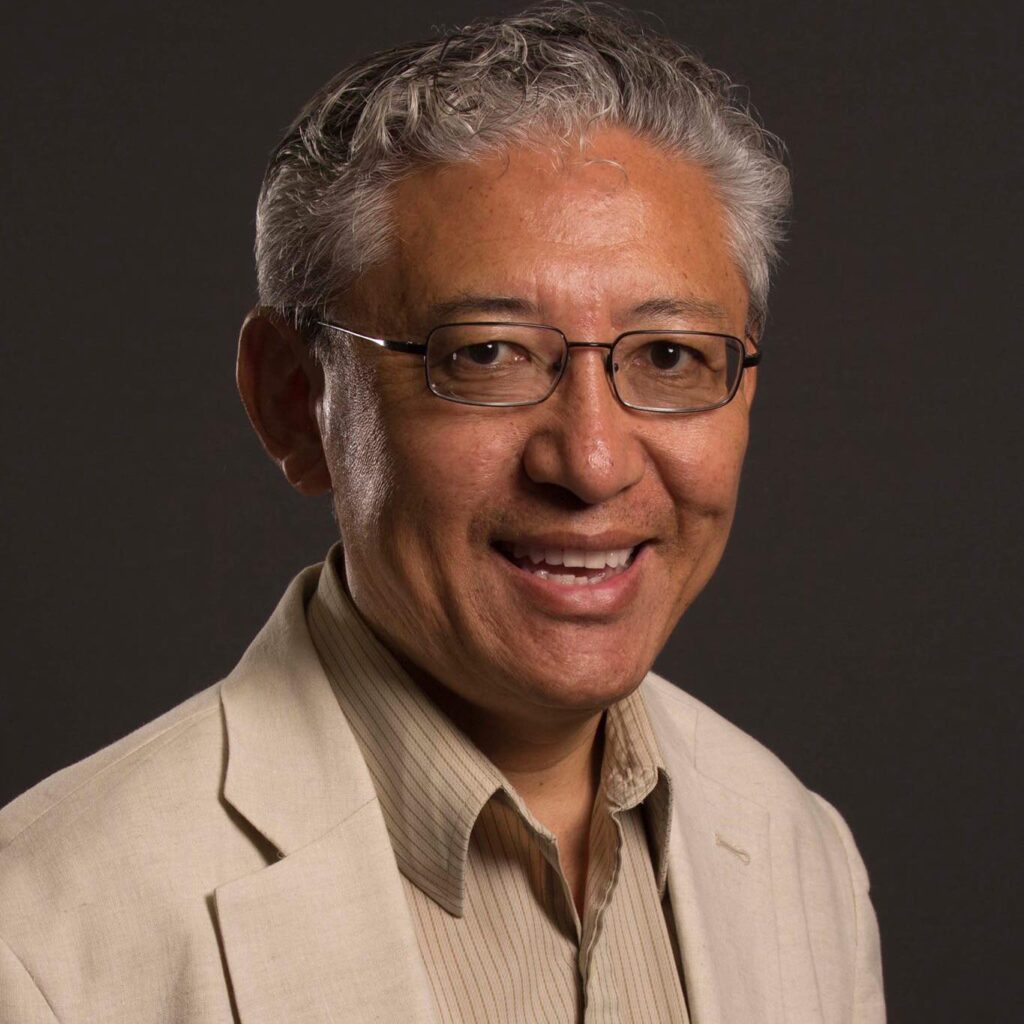OPINION
Human behaviors often violate each other’s expectations, which is especially true and rampant in an intercultural setting, and the video clip of a Feb 28 public event involving the Dalai Lama and a young Indian boy violated the cultural expectations of many worldwide, leading to an entirely uncalled for controversy, writes Dr Tenzin Dorjee*.
(TibetanReview.net, Apr29’23)
Last week on social media, a cropped video went viral depicting His Holiness the Dalai Lama kissing an Indian boy and saying “suck my tongue.” The video lacked any context which quickly led to the kneejerk hyper-sexualization of its content and outlandish accusations of child abuse. Contextual misappropriation and a lack of cultural sensitivity contributed to the defamation of a beloved global icon. Unfortunately, in an epic failure of journalistic ethics, major media outlets across the globe neglected to interview the subjects in question, and amplified the distorted images. When the Dalai Lama’s press office apologized for the furor, the global press lacked the cultural competency to decode the apology. It chose to capitalize on sensationalism instead.
The interaction took place on February 28 in Dharamsala at a livestreamed charity event (archived on the official website). During a Q & A period, the boy asked the Dalai Lama if he could offer him a hug. The 87-year-old leader sought the help of his aides twice to understand the boy before welcoming him onstage, and teasing him in a grandfatherly way. Both the boy and his mother were exuberant in media interviews shortly thereafter.
As a Tibetan-American Buddhist and intercultural communication scholar, I teach my students that contextual misappropriation distorts communication. The social media and news reports perversely misconstrued and misplaced the Dalai Lama’s interaction with the boy as a sexual encounter. Unfortunately, even some child rights advocates also rushed to frame the incident as abuse.
According to Expectancy Violations Theory (EVT), human behaviors often violate each other’s expectations, which is true and rampant in an intercultural setting. The video clip violated the cultural expectations of many worldwide. Studies overwhelmingly show negative evaluations of such violations. This week protests erupted globally against defaming the Dalai Lama. Today (Apr 21), the Dalai Lama delivered a keynote speech on compassion, altruism, and wisdom of interdependent origination at the Global Buddhist Summit in New Delhi to tackle global challenges and praxis.
Communicative meaning is socially encoded and decoded in a given socio-linguistic community. The Dalai Lama’s statement as made in English— “Suck my tongue”—caused much confusion since the verb “suck” in English has an explicit sexual connotation, but nobody bothered to check the meanings of the Tibetan word “hJibs” (Phonetics: Jib) for “suck” which is devoid of any negative or sexual implications. In the Tibetan language, when a mother breastfeeds her child, she says “Jib Dang” meaning “Suck it” which conveys a sense of nourishing or feeding.
Our culture also has healers called Jib Gyab Khan (“Suckers”). Years ago, I recall a rabid dog bit some local Tibetans in south India. They went to see a known healer “sucker” believing that poison would be literally sucked out of their systems via a cone-shaped pipe or direct kiss on the body.
Tibetans stick out their tongues as a sign of respect. Tibetan elders often tease their grandkids, coaxing them for kisses at each feeding. When eating tsampa (roasted barley flour), they may say “Dang po O chig tre dang” (“First, give me a kiss”) gesturing to their cheeks, their nose, and their lips, before sticking out their tongues in jest to finally say, “Da na la gas med. Nga’ che le za” (“Now, I have nothing to give you. Just eat my tongue”). Considering the intergenerational context, public setting, and how he said it, the Dalai Lama clearly meant no harm.
Tibetan humor is often lost in translation. But it is one of the few things that has kept us alive in the face of the ongoing cultural genocide in Tibet. The Dalai Lama is the exceptional leader who has dismissed formality by puckering his lips, tugging on beards, and making fart jokes. His self-deprecating humor brings levity into people’s lives, and hope to a world in despair.
Sadly, further confusion occurred when the Dalai Lama’s Office issued an apology over the incident because norms for apologizing vary widely across cultures. In collectivistic Asian cultures, members apologize easily in crisis or conflict situations, out of relational concerns to give face to others. In other words, offering an apology does not necessarily entail one is guilty of wrongdoing as is assumed in individualistic Western cultures.
The character defamation brought on by this episode has utterly shocked Tibetans, whom all wish we could have been as fortunate as that little Indian boy. The Dalai Lama should not have to apologize for anything. It is he who deserves the apology.
—
* Dr. Tenzin Dorjee is an Associate Professor of Human Communication Studies at California State University—Fullerton and Former Chair (2018-2019) of the United States Commission on International Religious Freedom (USCIRF)



